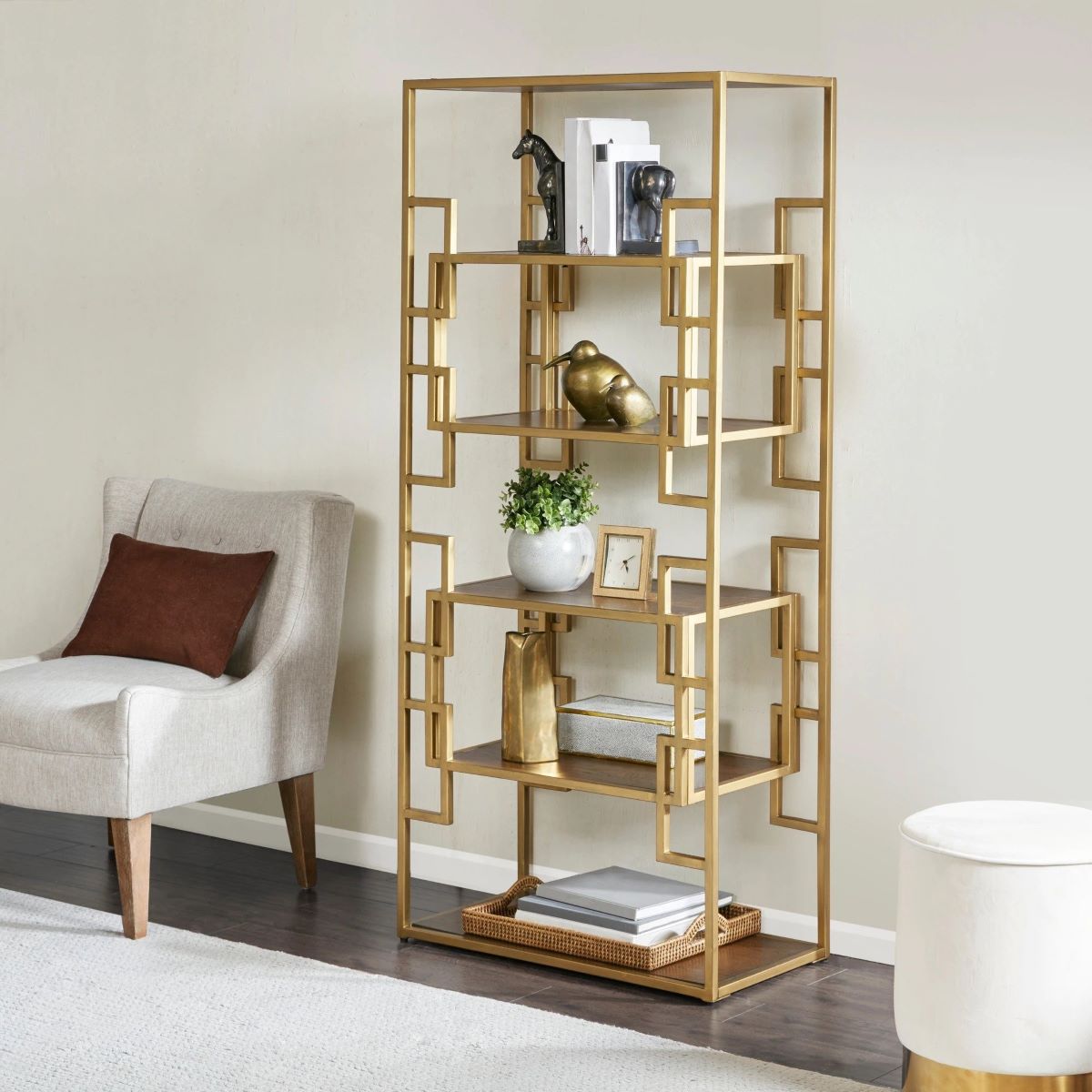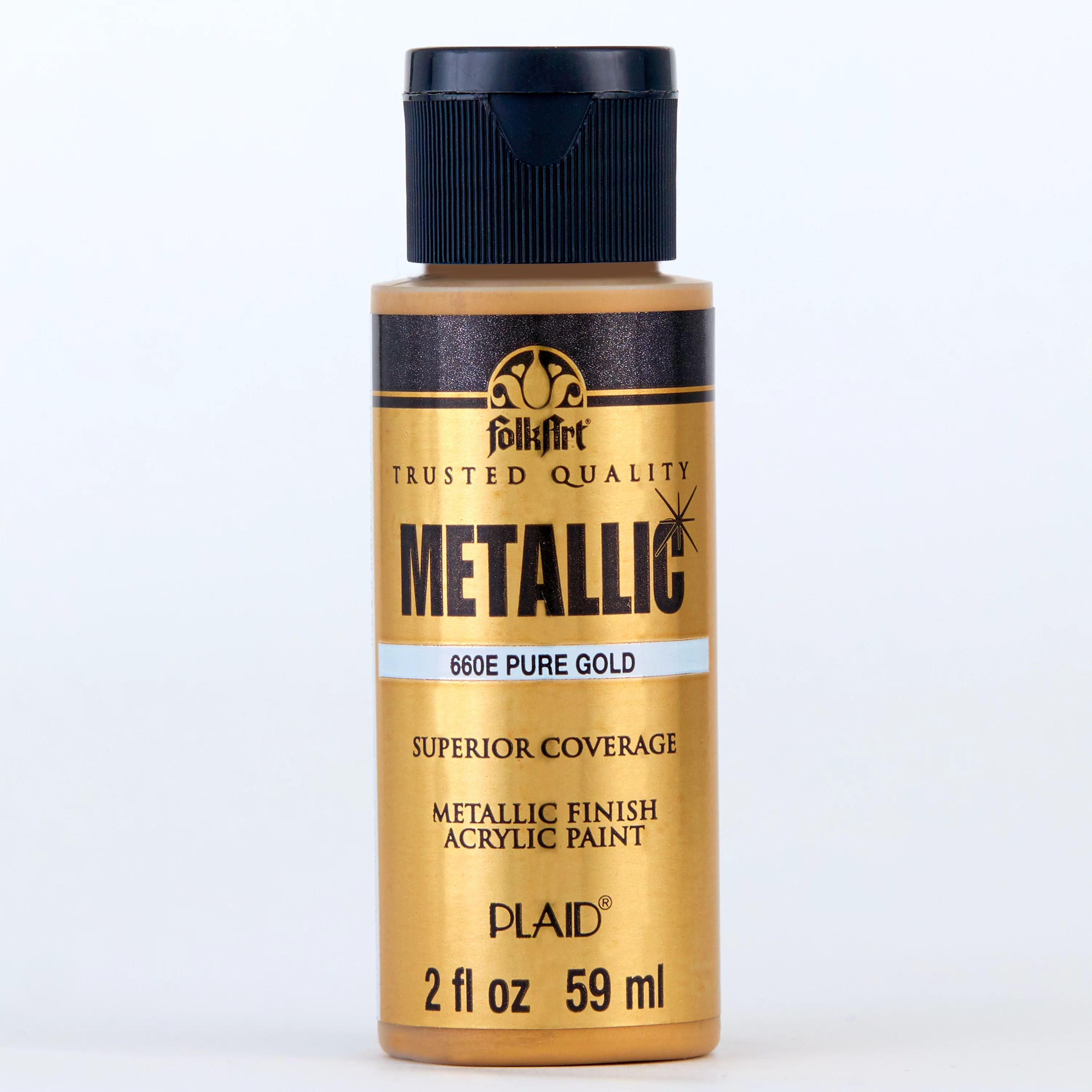

Articles
How To Store Gold
Modified: March 1, 2024
Learn the best methods and techniques for storing articles on gold to ensure its long-term preservation. Safeguard your precious investment with proper storage strategies.
(Many of the links in this article redirect to a specific reviewed product. Your purchase of these products through affiliate links helps to generate commission for Storables.com, at no extra cost. Learn more)
Introduction
Gold has long been considered a valuable asset and a safe haven investment. Its enduring appeal and ability to preserve wealth make it a popular choice for investors worldwide. However, owning gold also comes with the responsibility of storing it securely. Finding the right storage solution for your gold is crucial to protect your investment from theft, damage, or loss.
In this article, we will explore various options for storing gold and provide insights into the key considerations you need to keep in mind before making a decision. Whether you choose to store your gold at home, in a safety deposit box, a private vault, or in an offshore facility, understanding the pros and cons of each method can help you make an informed choice.
Before delving into the different storage options, it’s important to note that the value of gold is not limited to its physical form. Investors, especially those who are concerned about the security risks associated with storing actual gold, can also consider alternative options, such as investing in gold exchange-traded funds (ETFs) or purchasing shares in gold mining companies.
However, if you prefer the tangible nature of gold ownership and want to take possession of physical gold, you need to carefully assess your options for storage. Keep in mind that the storage method you choose should offer both security and accessibility, ensuring that you can confidently store your gold while having the ability to retrieve or sell it when needed.
In the following sections, we will explore the various considerations and options available for securely storing your gold to help you make the best decision for your specific circumstances.
Key Takeaways:
- Secure storage and proactive monitoring are crucial for safeguarding your gold investment. Evaluate security, accessibility, costs, and insurance coverage to make the best decision for your specific circumstances.
- Whether choosing home storage, safety deposit boxes, private vaults, or offshore facilities, thorough research and due diligence are essential. Stay informed about market trends and take necessary precautions to protect and maximize the value of your gold investments.
Read more: How To Store Gold Chains
Considerations before Storing Gold
Before choosing a storage option for your gold, there are several important considerations that you should take into account:
- Security: The primary concern when storing gold is security. You want to ensure that your gold is protected from theft, damage, or loss. Look for storage options that provide high-level security measures, such as surveillance cameras, alarms systems, and strict access controls.
- Accessibility: While security is vital, you also want to make sure that you can easily access your gold when needed. Consider the convenience of the storage facility’s location and their retrieval policies. For example, if you choose to store your gold in a safety deposit box at a bank, find out if you have 24/7 access or if you need to adhere to specific banking hours.
- Insurance: It’s crucial to explore the insurance options available for your stored gold. Ensure that the storage facility has comprehensive insurance coverage that can compensate you in the event of loss or damage. Alternatively, you may need to consider purchasing separate insurance coverage to protect your investment.
- Cost: Different storage options come with varying costs. Consider your budget and weigh it against the level of security and convenience offered by each storage solution. It’s essential to find a balance between affordability and the quality of storage facilities.
- Privacy: Some investors value privacy when it comes to their gold holdings. If privacy is a concern for you, consider storage options that prioritize client confidentiality and offer discrete services.
- Regulatory Compliance: If you choose to store your gold offshore, ensure that the facility adheres to local regulations and is compliant with relevant laws regarding precious metal storage. This will help protect your investment and minimize potential legal complications.
Considering these factors will help you narrow down your options and select the storage solution that best meets your needs. Remember, the importance of thorough research and due diligence cannot be overstated when it comes to storing your precious gold investments.
Home Storage Options
Storing your gold at home offers the convenience of having immediate access to your investment. However, it also comes with its own set of considerations and risks. Here are some home storage options to consider:
- Safes: Investing in a high-quality safe can provide a secure way to store your gold at home. Look for safes that are specifically designed to protect valuable items like precious metals and have features such as fire resistance and advanced locking mechanisms. Place the safe in a discreet location within your home to minimize the risk of theft.
- Hidden Compartments: If you prefer a more discreet approach, you can consider installing hidden compartments within your home. These can be customized to fit small amounts of gold and can be concealed behind wall panels, floorboards, or furniture.
- Home Security Systems: Enhancing the security of your home with surveillance cameras, alarms, and motion sensors can help deter potential thieves. Make sure to prominently display signs indicating the presence of a security system to further discourage unauthorized access.
- Diversion Safes: Diversion safes are designed to mimic everyday objects, such as books or household items, while providing a hidden compartment to store valuables. This option can be useful if you want to keep your gold discreetly stored without drawing attention to it.
While home storage can offer convenience and immediate access, it’s important to assess the security risks associated with storing gold on your property. Homes can be vulnerable to theft, fire, or natural disasters, which can put your investment at risk. Consider implementing additional security measures and ensuring that your homeowner’s insurance provides adequate coverage for precious metals.
Furthermore, it’s crucial to maintain confidentiality about your home storage arrangements. Avoid discussing your valuable holdings openly and be cautious about who has access to your home and knowledge of your gold storage.
Ultimately, the decision to store gold at home should be based on a careful evaluation of the security risks and your personal circumstances. If you choose this option, be diligent in implementing robust security measures to protect your investment.
Safety Deposit Box Storage
Safety deposit boxes offered by banks or financial institutions are another popular option for storing gold. Here are some key considerations when opting for safety deposit box storage:
- Security: Safety deposit boxes are typically housed within highly secure bank vaults, offering a high level of protection against theft and unauthorized access. Banks employ advanced security measures, including surveillance cameras, alarms, and restricted access protocols, to safeguard the contents of safety deposit boxes.
- Privacy: Safety deposit boxes provide a level of privacy, as the contents are generally kept confidential. The bank does not have access to or knowledge of the specific items stored in the box.
- Insurance: Banks often have insurance coverage for items stored in safety deposit boxes. However, it’s essential to verify the extent of coverage and understand any limitations or exclusions that may apply. If necessary, you can supplement the bank’s coverage with additional insurance specifically tailored to your gold holdings.
- Accessibility: Safety deposit boxes offer secure storage while still providing relatively easy access to your gold. However, it’s important to note that you may need to adhere to the bank’s operating hours and may not have 24/7 access to your box.
- Cost: Safety deposit boxes come with an annual rental fee, which varies depending on the size of the box and the location of the bank. Take into account the cost of the box rental when considering this storage option.
When choosing a bank for safety deposit box storage, ensure that you select a reputable institution with a proven track record in security and customer service. Research the bank’s policies, including their access procedures and any restrictions on the types of items that can be stored in the box.
It is important to note that using a safety deposit box does have limitations. If you have a large amount of gold or frequently need access to your holdings, the size and accessibility of the box may become a constraint. Additionally, relying solely on one bank for storage means that your gold is subject to the bank’s operational risks and potential disruptions in the event of financial instability.
Considering these factors, safety deposit box storage can be a secure and convenient option for individuals looking for a professional storage solution outside of their homes. It offers peace of mind knowing that your gold is protected within a highly secure and regulated environment.
Private Vault Storage
Private vault storage facilities provide a dedicated and secure space for storing valuable assets, including gold. Here are some important points to consider when opting for private vault storage:
- Enhanced Security: Private vaults are equipped with state-of-the-art security systems, including advanced surveillance cameras, alarms, biometric access controls, and round-the-clock monitoring. These measures help ensure the highest level of protection for your gold.
- Confidentiality: Private vaults prioritize client confidentiality. Your identity and the specific contents of your storage unit are kept confidential, providing an additional layer of privacy and security.
- Insurance: Private vault facilities typically offer comprehensive insurance coverage for the items stored within their premises. Ensure that you review the insurance policy details and clarify any coverage limitations or exclusions before storing your gold.
- Accessibility: Private vaults often provide flexible access options, including extended hours of operation and personalized appointment-based visits. This allows you to retrieve or add to your gold holdings according to your convenience.
- Specialized Services: In addition to secure storage, private vault facilities may offer additional services such as inventory management, appraisal services, and secure transportation options. These services can further enhance the convenience and efficiency of managing your gold investments.
When choosing a private vault facility, it is crucial to conduct thorough research and due diligence. Look for reputable vault providers with a solid track record in security and customer satisfaction. Investigate their security protocols, certifications, and compliance with relevant industry standards.
Private vault storage is ideal for individuals who have significant holdings of gold or other valuable assets and require maximum security and discretion. It offers a professional and specialized storage environment that is specifically designed to protect and preserve the integrity of your investment.
However, it’s important to consider the cost of private vault storage. The fees associated with this option can be higher than other storage methods due to the enhanced security measures and specialized services provided. Assess the value of your gold holdings and balance it against the cost of storage to determine if private vault storage is a practical and economical choice for you.
Private vault storage offers a comprehensive solution for individuals seeking the highest level of security and convenience for storing their gold. It provides peace of mind, knowing that your precious metal investments are in a highly secure and confidential environment.
Store gold in a secure and fireproof safe or safety deposit box to protect it from theft and damage. Keep a detailed inventory and consider insuring your gold against loss or theft.
Read more: How To Store Gold Jewelry
Offshore Storage
Offshore storage, also known as international storage, involves storing your gold in a secure facility located outside of your home country. Here are some considerations when exploring offshore storage options for your gold:
- Diversification: Offshore storage allows you to diversify the geographical location of your assets. By storing your gold in a different country, you reduce the risk of having all your investments within the same jurisdiction.
- Political and Economic Stability: Choose a country with a stable political and economic environment for offshore storage. Look for locations with a reputation for strong financial regulations and respect for property rights.
- Security and Confidentiality: Select a storage facility in a country known for its robust security protocols, stringent regulations, and utmost respect for client confidentiality. Research the facility’s reputation, certifications, and compliance with international standards.
- Tax and Reporting Considerations: Consult with a tax advisor to understand the implications of offshore storage on your tax obligations and reporting requirements. Different countries have varying tax laws, and it’s crucial to comply with all relevant regulations.
- Transportation: Consider the logistics and security measures involved in transporting your gold offshore. Look for reputable transportation services that specialize in secure and insured transportation of precious metals.
Offshore storage offers increased diversification and can provide additional asset protection. It can be particularly beneficial for individuals who have concerns about political instability, economic uncertainties, or asset seizure risks in their home country.
However, it’s important to note that offshore storage can come with higher costs and complexities compared to domestic storage options. Consider the fees associated with international transportation, storage facility charges, and any additional taxes or reporting requirements that may apply.
Additionally, offshore storage can present challenges in terms of accessibility. If you need to physically visit the storage facility, consider the practicality and cost of travel arrangements to the offshore location.
Before engaging in offshore storage, consult with legal and financial professionals who specialize in international asset management. They can provide guidance on selecting a suitable jurisdiction and navigating the legal and regulatory considerations associated with offshore storage.
Offshore storage can be a strategic choice for diversifying your gold holdings and minimizing risks associated with your home country’s economic and geopolitical landscape. Careful planning and due diligence are essential to ensure compliance with regulations and to protect the integrity and accessibility of your gold investments.
Insurance for Stored Gold
When storing your gold in a professional storage facility or a safety deposit box, it’s essential to consider insurance coverage to protect your investment. Here are some key points to consider when obtaining insurance for your stored gold:
- Storage Facility Insurance: Professional storage facilities often provide insurance coverage as part of their service. Review the terms and conditions of the facility’s insurance policy to understand the level of coverage provided. Ensure that it adequately compensates you in the event of loss, damage, or theft of your gold.
- Additional Insurance Coverage: If the insurance provided by the storage facility is not sufficient, you may consider purchasing additional insurance coverage. Specialized insurance providers offer policies specifically tailored to protect valuable assets like gold. These policies can offer additional coverage and help fill any gaps in the storage facility’s insurance.
- Valuation and Appraisal: It’s important to have accurate and up-to-date valuations for your gold to ensure proper insurance coverage. Regular appraisals can help determine the current value of your stored gold and ensure that it is adequately insured. Keep meticulous records of your gold holdings, including certificates, serial numbers, and any other relevant documentation.
- Policy Limitations and Deductibles: Carefully review the insurance policy to understand any limitations, exclusions, or deductibles that may apply. Be aware of any specific circumstances that may void the coverage, such as inadequate security measures or failure to disclose important information.
- Documentation and Proof of Ownership: Maintain proper documentation to establish ownership of your gold. This documentation may include purchase receipts, invoices, certificates, or any other supporting evidence. Having clear proof of ownership is crucial when filing insurance claims.
- Insurance Costs: The cost of insurance coverage will depend on various factors, including the value of your gold holdings, the level of security at the storage facility, and the insurance provider’s assessment of risk. Consider the insurance costs as part of your overall storage expenses.
When selecting an insurance provider, look for reputable companies with a strong financial track record and experience in insuring valuable assets. Seek recommendations, read reviews, and compare coverage options to ensure you choose the best insurance solution for your needs.
Remember that insurance coverage is not a substitute for proper security measures. While insurance provides financial protection, implementing robust security protocols, such as choosing a reputable storage facility and following their recommended security guidelines, is essential to minimize the risk of loss or damage to your gold investment.
Regularly review your insurance coverage and make adjustments as necessary to ensure your stored gold is adequately protected. Keep open lines of communication with your insurance provider and storage facility to stay informed about any changes in policies or security practices that may affect your coverage.
Insurance coverage provides valuable peace of mind, knowing that your stored gold is protected against potential risks. By combining comprehensive insurance with secure storage solutions, you can safeguard your investment and mitigate potential losses.
Secure Transportation of Gold
Transporting gold safely requires careful planning and adherence to strict security protocols. Whether you are moving your gold to a storage facility or conducting a transaction, here are some key considerations for secure transportation:
- Choose a Professional Transportation Service: When transporting gold, it is essential to work with reputable and experienced transportation providers specializing in precious metals. They have the expertise and security measures in place to ensure the safe handling and delivery of your gold.
- Armored Vehicles: Armored vehicles are specifically designed to transport valuable goods securely. They provide physical protection against theft and can be equipped with advanced security features such as GPS tracking and surveillance systems.
- Security Personnel: Consider utilizing trained security personnel to accompany the transportation of your gold. They can provide an additional layer of protection and respond to any potential security threats.
- Discreet Packaging: Ensure that your gold is packaged discreetly, without revealing its contents. Use tamper-proof, sturdy packaging that conceals the nature of the shipment to minimize the risk of theft or targeting.
- Insurance Coverage: Verify that your gold is adequately insured during transportation. The transportation service should offer insurance coverage or work in partnership with insurance providers to protect your valuable assets in transit.
- Chain of Custody: Maintain a clear chain of custody for your gold during transportation. Keep meticulous records of the gold’s location, those involved in handling it, and any handovers that occur to ensure accountability and minimize the risk of loss or tampering.
- Plan Ahead: Plan transportation routes ahead of time, considering factors such as traffic patterns, potential security risks, and any legal requirements or regulations you need to comply with. Perform thorough risk assessments to anticipate and mitigate potential threats.
- Communication and Tracking: Maintain open lines of communication with the transportation service throughout the journey. Ensure that you receive regular updates on the status and location of your gold shipment. GPS tracking technology can provide real-time monitoring and enhance security.
- Confidentiality: When transporting gold, it is essential to maintain confidentiality about the nature and value of the shipment. Limit the number of individuals who have knowledge of the transport details to minimize the risk of insider threats.
Before entrusting your gold to a transportation service, thoroughly assess their reputation, security protocols, and track record. Request references and conduct due diligence to ensure that they have a solid reputation in the industry.
Remember, secure transportation is a critical step in protecting your gold investment. Implementing comprehensive security measures and working with trusted professionals can help safeguard your assets during transit and provide you with peace of mind.
Monitoring Gold Prices
Monitoring gold prices is essential for investors who own or are considering investing in gold. Understanding the factors that influence gold prices and staying informed about market trends can help you make informed decisions regarding your gold holdings. Here are some key points to consider when monitoring gold prices:
- Stay Updated on Market News: Keep abreast of the latest market news and economic developments that can impact gold prices. Follow reputable financial news sources and stay informed about geopolitical events, central bank policies, inflation rates, and currency movements.
- Utilize Price Tracking Tools: Take advantage of price tracking tools, such as online platforms or mobile applications, that provide real-time and historical data on gold prices. These tools can help you monitor price fluctuations and identify patterns that may inform your investment decisions.
- Technical Analysis: Consider using technical analysis techniques to analyze historical price data and identify trends, support levels, and resistance levels. This approach can help you determine optimal entry or exit points for your gold investments.
- Factors Influencing Gold Prices: Understand the factors that influence gold prices, such as supply and demand dynamics, interest rates, inflation, currency value, and investor sentiment. Monitoring these factors can provide insights into the potential direction of gold prices.
- Track Gold-Related Indexes: Keep an eye on gold-related indexes, such as the Gold Fixing Price or the Gold Spot Price, which serve as benchmark indicators for the value of gold. These indexes can give you a broader perspective on the overall market sentiment towards gold.
- Follow Expert Analysis: Consider exploring expert analysis and commentary on gold prices from reputable financial analysts or institutions. Their insights and forecasts can provide valuable perspectives on market trends and help you make informed decisions.
- Set Price Targets: Establish price targets based on your investment goals and risk tolerance. Having clear targets can help guide your buying or selling decisions and prevent emotional reactions to short-term price fluctuations.
- Consider Long-Term Trends: While monitoring short-term price movements is important, also consider long-term trends in the gold market. Gold has historically been a store of value and a hedge against inflation, making it a strategic long-term investment for many investors.
- Diversify Your Information Sources: To gain a well-rounded perspective, diversify your sources of information. Explore different viewpoints, investment strategies, and expert opinions to help you form your own informed viewpoint on gold prices.
Remember, monitoring gold prices is an ongoing process. Market conditions can change rapidly, and staying informed is crucial for successful gold investing. Continuously review and reassess your investment strategy based on new information and market developments.
Lastly, it’s important to note that while monitoring gold prices can be informative, it should not be the sole basis for making investment decisions. Consider your individual financial goals, risk tolerance, and seek professional advice when necessary to make well-informed decisions regarding your gold investments.
Read more: How To Store Gold At Home
Conclusion
Storing gold securely is essential to protect your investment from theft, damage, or loss. By considering the various storage options available and understanding the key factors involved, you can make an informed decision that aligns with your needs and preferences.
Home storage options provide convenience and immediate access to your gold. Safes and hidden compartments can offer a level of security within your own home, but be cautious of the associated risks and ensure you implement additional security measures to mitigate them.
Safety deposit box storage at banks provides a high level of security and confidentiality. It offers peace of mind, knowing that your gold is stored within a highly protected facility. However, keep in mind limitations on accessibility and the cost of the rental fees.
Private vault storage facilities offer enhanced security measures, strict confidentiality, and specialized services. They are ideal for individuals with significant gold holdings who prioritize maximum security and discretion.
Offshore storage provides geographical diversification and can protect against risks associated with your home country. Consider offshore storage in politically and economically stable jurisdictions, while being mindful of tax and reporting obligations.
Insurance coverage is essential for protecting your stored gold from potential risks. Ensure that storage facilities provide adequate insurance or consider purchasing additional coverage to fill any gaps. Valuation and clear documentation of ownership are crucial for insurance claims.
When transporting gold, work with reputable transportation services that specialize in secure handling and have robust security protocols in place. Package gold discreetly, maintain a clear chain of custody, and ensure appropriate insurance coverage during transit.
Monitoring gold prices and staying informed about market trends is critical for making informed investment decisions. Utilize price tracking tools, stay updated on market news, and consider expert analysis to gain insights into gold price movements.
In conclusion, secure storage and proactive monitoring are crucial for safeguarding your gold investment. Whether you choose home storage, safety deposit boxes, private vaults, offshore facilities, or a combination of these options, evaluating the security, accessibility, costs, and insurance coverage will help you make the best decision for your specific circumstances. By staying informed about market trends and taking necessary precautions, you can protect and maximize the value of your gold investments.
Frequently Asked Questions about How To Store Gold
Was this page helpful?
At Storables.com, we guarantee accurate and reliable information. Our content, validated by Expert Board Contributors, is crafted following stringent Editorial Policies. We're committed to providing you with well-researched, expert-backed insights for all your informational needs.














0 thoughts on “How To Store Gold”